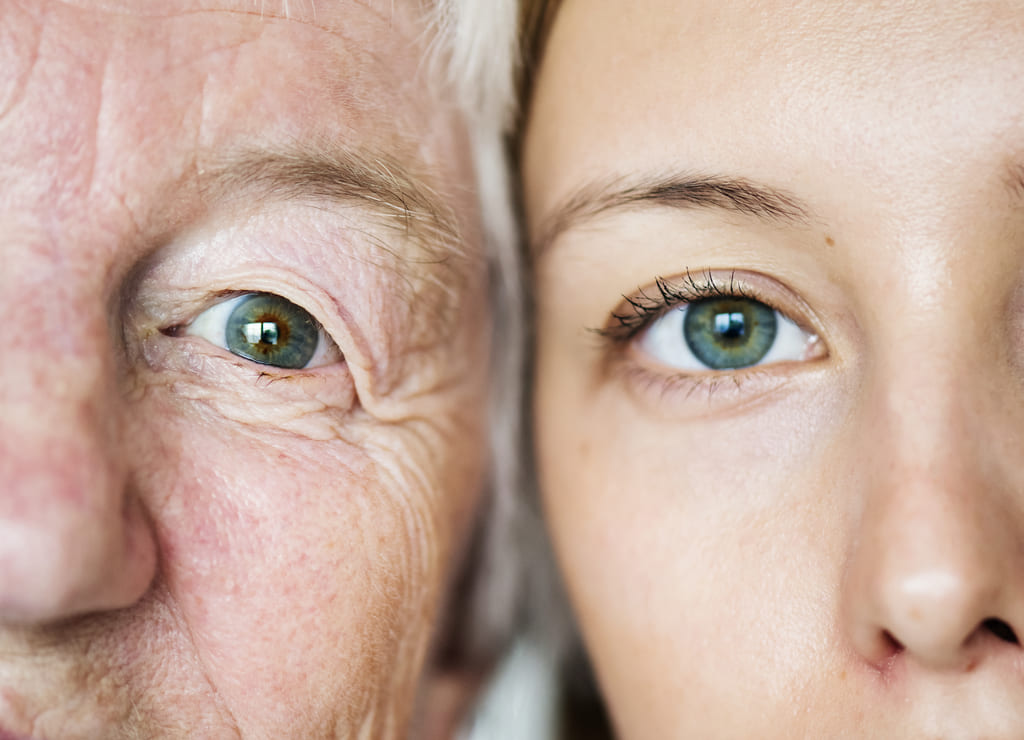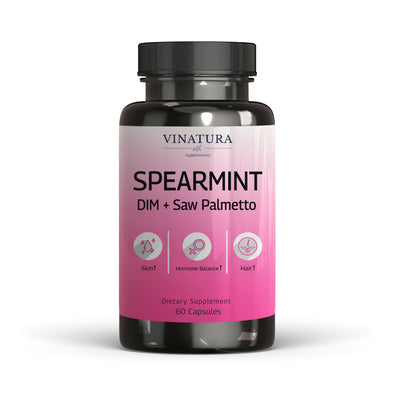
Lactobacillus Reuteri Skin Benefits & Dermatitis Atopica
Are you familiar with the skin condition Dermatitis Atopica? This frustrating inflammatory skin disorder can cause extreme irritation and discomfort. Though there is no cure for this chronic condition, recent research hints at a possible solution for those who suffer from it: the probiotic strain Lactobacillus Reuteri. In this blog post, we'll look deeper into Lactobacillus Reuteri skin benefits and how it combats symptoms of Dermatitis Atopica and reveal some of its additional skin-related benefits.
Before exploring further, please read the disclaimer located at the end of this webpage.
Lactobacillus Reuteri Skin Benefits
Lactobacillus Reuteri is a probiotic strain known for its diverse health benefits. It is typically present in the gastrointestinal tract and is crucial in promoting a balanced gut microbiome. However, recent studies have shown that Lactobacillus Reuteri also has skin benefits, particularly for individuals with dermatitis atopic.
Effective for Atopic Dermatitis
Atopic Dermatitis, or Atopic Eczema, is a prevalent skin condition marked by dry, itchy, and irritated skin. It begins in childhood and is commonly seen in individuals with a personal or family history of allergies, asthma, or hay fever. Although the precise cause is unclear, it is believed to arise from an intricate interplay of genetic, environmental, and immune system factors.
Lactobacillus Reuteri is beneficial in the management of Atopic Dermatitis. This probiotic strain helps in maintaining the skin's microbial balance and strengthening its barrier function, thus reducing the severity of symptoms. It helps in mitigating the inflammatory response, thereby soothing irritation and reducing redness. Furthermore, studies have demonstrated that regular intake of Lactobacillus Reuteri can improve skin hydration and elasticity, promoting overall skin health and resilience against potential triggers of Atopic Dermatitis.
Is it true that there are scientific studies supporting the lactobacillus reuteri skin benefits? Let's delve into the scientific findings and explore what they have to say.

The study titled "Lactobacillus reuteri DSM 17938 as a Novel Topical Cosmetic Ingredient: A Proof of Concept Clinical Study in Adults with Atopic Dermatitis" examined and compared two investigational ointment products that were applied twice daily for 8 weeks. Positive results were obtained at the end of the trial [1].
According to the research, both products demonstrated significant clinical and statistical improvements. However, the product containing L. reuteri DSM 17938 exhibited a slightly more substantial effect than the placebo. It effectively hydrated the stratum corneum, reduced transepidermal water loss, alleviated skin dryness, relieved itching, and restored the disrupted skin barrier function [1].
Additionally, the study highlighted that topical ointments containing probiotics like reuteri not only improved skin health but also did not result in significant adverse effects [1].
Another study was conducted on children aged 1-13 with atopic dermatitis over 6 weeks [2]. The results indicated that 56% of patients experienced an improvement in their eczema condition (a decrease from 18.2% to 13.7% during the treatment) [2].
The study concluded that the effectiveness was more pronounced in patients who displayed a positive response to skin prick testing and had increased IgE levels [2].
Furthermore, a study conducted on mice revealed that maternal-origin Limosilactobacillus reuteri prevented allergic skin inflammation by activating Retinol uptake. Lactobacillus reuteri Fn041 significantly inhibited AD symptoms, including skin swelling, mast cell counts, and neutrophil infiltration. Its mechanism of action involved regulating the Th1 and Th2 cytokine balance in the body and promoting T-cell proliferation [3].
Prevent Photoaging and Anti-aging
Research indicates that Lactobacillus Reuteri may protect against premature skin aging caused by UV radiation from the sun and other sources. Photoaging leads to increased wrinkle formation and diminished skin elasticity.
Lactobacillus Reuteri improves skin health by enhancing natural defense mechanisms, increasing resilience to environmental stressors like UV rays, and maintaining the skin's microbiome and moisture. Additionally, its anti-inflammatory properties can reduce UV-induced damage and promote hydration and elasticity for a more youthful appearance.
Studies focus on the effects of Lactobacillus Reuteri on preventing photoaging and aging, especially regarding probiotics.

Related article: 6 Best Reuteri Supplements for Digestive Health
First, a study by Jingsha Zhao titled "Protective effects of Lactobacillus reuteri SJ-47 strain exopolysaccharides on human skin fibroblasts damaged by UVA radiation" [4]. The study aimed to evaluate the exopolysaccharides (EPS) of the Lactobacillus reuteri SJ-47 strain in protecting human skin fibroblasts (HSF) against UVA radiation.
The research recognized that the pathway leading to the Lactobacillus reuteri skin benefits is due to its antioxidant properties and anti-inflammatory effects. Additionally, Lactobacillus reuteri SJ-47 strain exopolysaccharides (EPS) increased collagen production and prevented skin aging caused by UVA exposure [4].
Another study on the potential of skin microbiota (probiotics and prebiotics) in conditions caused by UV exposure suggests that probiotics and prebiotics show promise in protecting the skin from UVR-induced damage. This study mentions Lactobacillus reuteri, which exhibits anti-inflammatory properties on the regenerated epidermis of human skin exposed to UVR-induced inflammation [5].
A similar study on probiotics mentions that topically applied Lactobacillus reuteri DSM 1793891 has anti-inflammatory activity, reducing IL-6 and IL-8 induced by UVR [6].
While more research is needed to establish the anti-aging benefits of Lactobacillus Reuteri conclusively, these findings underscore the potential of this probiotic strain in skincare, particularly in strategies aimed at preventing photoaging and promoting skin health.
Several Amazon users who have taken supplements containing Lactobacillus Reuteri have reported noticeable improvements in their bodies. One user, Brooklyn New York, shared: “I started this probiotic 30 days ago! It WORKS. I’m finally losing my menopause belly and overall weight. I’m so happy with this product and have been recommending it to all my friends!!!!”*
How To Use Lactobacillus Reuteri For Skin Benefits?
To maximize the lactobacillus reuteri skin benefits, incorporate it into your daily routine. Consuming probiotics is possible through dietary sources such as fermented foods like yogurt, kefir, kimchi, and sauerkraut or by taking supplements.
Additionally, topical application of Lactobacillus reuteri-containing skincare products has shown promising results in improving skin health. These products can be found in creams, ointments, and serums.

Lactobacillus Reuteri supplements can be a game-changer for skin health. They can be consumed orally or applied topically to the skin. Oral supplements enhance the gut microbiota, which plays a crucial role in skin health. A balanced gut microbiota can improve skin conditions such as acne, eczema, and rosacea. It also promotes healthy skin aging by increasing skin hydration and reducing wrinkles.
On the other hand, topical application of Lactobacillus Reuteri delivers the probiotic directly to the skin. This method is particularly effective in dealing with skin issues like dryness, atopic dermatitis, and photoaging. When applied topically, Lactobacillus Reuteri can balance the skin's microbiome, soothe inflammation, increase hydration, and strengthen the skin's barrier function, keeping harmful bacteria out and locking moisture in.
It's important to note that while Lactobacillus Reuteri supplements have been shown to have potential skin benefits, each person's skin and body are unique. Therefore, results may vary, and it's recommended to consult a healthcare provider or dermatologist before starting any new supplement regimen. Always opt for high-quality, tested products to ensure safety and efficacy.
Final Thoughts
Incorporating Lactobacillus reuteri into your skincare routine can be a promising step to unlock the full spectrum of Lactobacillus reuteri skin benefits. This probiotic strain has demonstrated its potential in enhancing skin health and protecting against UV-induced skin issues. Its anti-inflammatory, antioxidant, and moisturizing properties make it a valuable asset for your skincare regimen. As natural and holistic skincare approaches gain popularity, Lactobacillus reuteri stands out as a beneficial choice for achieving healthier, more youthful skin. However, further research is required to fully grasp its potential and advantages for skin care.
References
- 1. Butler, E. I., Christoffer Lundqvist, & Axelsson, J. (2020). Lactobacillus reuteri DSM 17938 as a Novel Topical Cosmetic Ingredient: A Proof of Concept Clinical Study in Adults with Atopic Dermatitis. Microorganisms, 8(7), 1026–1026. https://doi.org/10.3390/microorganisms8071026
- 2. Rosenfeldt, V., Benfeldt, E., Susanne Dam Nielsen, Kim Fleischer Michaelsen, Dorthe Lisbeth Jeppesen, Niels Henrik Valerius, & Anders Pærregaard. (2003). Effect of probiotic Lactobacillus strains in children with atopic dermatitis. The Journal of Allergy and Clinical Immunology, 111(2), 389–395. https://doi.org/10.1067/mai.2003.389
- 3. Zhao, Y., Cui, Q., Li, X., Lu, M., Zhang, H., Zhou, J., Dang, H., Chen, J., Li, S., Sun, J., Yu, R., & Li, D. (2022). Prevention of Atopic Dermatitis in Mice by Lactobacillus Reuteri Fn041 Through Induction of Regulatory T Cells and Modulation of the Gut Microbiota. Molecular Nutrition & Food Research, 66(6). https://doi.org/10.1002/mnfr.202100699
- 4. Zhao, J., Fu, H., Zhang, Y., Li, M., Wang, D., Zhao, D., Zhang, J., & Wang, C. (2022). Protective effects of Lactobacillus reuteri SJ-47 strain exopolysaccharides on human skin fibroblasts damaged by UVA radiation. Bioresources and Bioprocessing, 9(1). https://doi.org/10.1186/s40643-022-00617-0
- 5. Patra, V., Irène Gallais Sérézal, & Wolf, P. (2020). Potential of Skin Microbiome, Pro- and/or Pre-Biotics to Affect Local Cutaneous Responses to UV Exposure. Nutrients, 12(6), 1795–1795. https://doi.org/10.3390/nu12061795
- 6. Teng, Y., Huang, Y., Danfeng, X., Tao, X., & Fan, Y. (2022). The Role of Probiotics in Skin Photoaging and Related Mechanisms: A Review. Clinical, Cosmetic and Investigational Dermatology, Volume 15, 2455–2464. https://doi.org/10.2147/ccid.s388954
Testimonial Disclaimer
*The testimonials presented on this website are provided by individuals based on their personal experiences with our products. These testimonials represent individual opinions and experiences, which may not be typical or applicable to all users of our products. Results may vary depending on a variety of factors, including individual health, lifestyle, and adherence to product usage instructions.Author

Product Disclaimer
The dietary supplement products mentioned on this website are formulated based on scientific research and adhere to FDA guidelines for dietary supplements. However, the content of the articles has not been evaluated by the Food and Drug Administration (FDA) and is not intended to promote or endorse any specific product. Any products sold on this website are not intended to diagnose, treat, cure, or prevent any disease.
Opinions and Endorsements
Any claims, statements, or opinions expressed in the articles are those of the author(s) and do not necessarily reflect the views or opinions of the manufacturers of the dietary supplement products. The products sold on this website are separate from the content of the articles and are not directly endorsed or associated with the information presented here.
Liability Disclaimer
The author(s) of the articles, website, and manufacturers of the dietary supplement products do not assume any liability for any potential consequences arising from the use of the information provided in the articles. It is recommended that individuals consult with a qualified healthcare professional before making any dietary or lifestyle changes, including the use of dietary supplements.
Product Usage
Please refer to the product labels and packaging for specific usage instructions and guidelines for the dietary supplement products sold on this website.
Customer Support
For any concerns or questions regarding the dietary supplement products, please contact our customer support team, who will be more than happy to assist you.





Leave a Comment
Be the first to comment.
What do you think?